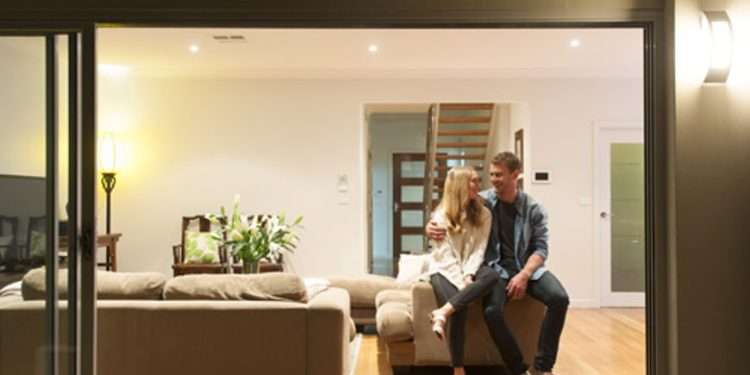Are you getting swept up in the excitement of becoming a homeowner from just a renter? You are not alone. According to the UN-Habitat, there has been an increasing demand for new housing and infrastructure. Getting overwhelmed when making such an important financial decision is expected. But sometimes, in a sudden rush of emotions, homeowners commit mistakes that can put everything they have earned in jeopardy.
If you have just purchased a new home or are planning to have one, the following steps will help save your time, money and effort.
Setting an all-inclusive Budget.
Rome was not built in a single day, and the same would be true for your dream home. Are you having trouble coping with your budget? If you plan to own a home, your income and assets alone should not determine your budget planning. It would be best if you did not overlook your debts.
People tend to be hasty and irrational in the purchase of a home. These can be detrimental to worthwhile decision-making. A clear picture of your down payment is essential to making a rough estimate of your monthly mortgage payments, utilities, taxes, insurance and other associated expenses. (mercyhealthplex.com)
Not to forget that buying a new home will cause a dent in your savings by the moving expenses and the down payment. There is no need to stress yourself out by trying to make everything perfect instantly. Save a moderate amount for personalizing and upgrading your house after it is finished. You can rebuild your savings and wait for the time to comfortably afford any modifications you want.
Giving due-share to maintenance
The advantage of performing annual upkeep is that it helps stave off expensive repairs, as per the research of North Carolina State University Extension. Buying a home can bring you to a whole new dimension of responsibility. Now, there is no landlord to complain about your clogged toilet or frequent leakage from your roof. You have to keep up both your yard and home. Hence, the repairing cost will be a new addition to your list of expenses.
From changing filters in the furnace to preventing molds, you might get overwhelmed with everything that needs repair and maintenance services. It would help if you exercised restraint in purchasing non-essential items, but delay in essentials might land you in troubled waters.
Therefore, plan for the breakdowns and make repairs/replacements before a small problem becomes bigger and costlier. However, the good thing is that there are foreseeable common issues whose maintenance can be prioritized to avoid mishaps in the longer run.
Financial Protection for Unfavorable Circumstances
Home insurance is necessary to protect your living place and belongings against damage or theft. Hence it can be termed as a necessity rather than a luxury. If you are living in a rented apartment and saving all the money for the down payment of your new home while thinking about how much home insurance you need, it is time to burst your bubble.
You do not need to own your home to register for insurance; it can also cover rental space. It is all about protecting gradual and accidental damages to a residence. Insurance coverage and liability protection can cushion savings against disasters or unfavorable circumstances.
It will also provide a suitable insurance history to your prospective insurer when purchasing your first home.
Choosing the Right Mortgage.
Most first-time homeowners do not have the cash to pay for the home in full. But luckily, banks offer elaborate mortgage plans to aid such buyers. The real struggle starts when you have to choose the best type of mortgage. Once you have a clear path set for your down payment, you’ll be able to shortlist the lender. Compare the offers of different lenders, determine the loan’s interest rate and overall cost, and shop around for the best mortgage.
When getting a mortgage, you should consider;
- principal mortgage amount
- amortization
- payment frequency
Make sure to pre-approve for a loan before placing an offer to determine the maximum mortgage amount you can obtain. You will likely get a lower mortgage interest rate and a better credit score.
Therefore, if you are trying to figure out a strategy to help you save some bucks, choosing the right mortgage will help you in the long run.
Other Parameters
Ensure a minimum debt-to-income ratio, high credit score and a well-constructed budget that caters to additional expenses like property tax and home insurance. Once that is done, you are ready for your new home. Now all you need is to review different home options.
Not everybody has the same priorities when buying a home. You can select a single-family home or a duplex depending on your budget, size, location, construction, overall condition and space requirements. A condominium might be the right choice for you if you want to live in a place that shares common areas and amenities. Townhomes are the best choice if you are considering living in a multi-story structure.
Apart from wanting safety, security and comfort, the “needs vs. wants” assessment will help you focus your search. Therefore, you will avoid viewing homes not aligned with your ultimate goal. To prevent trouble in house hunting, consider the home’s style, condition and age before selecting a home.
Conclusion
If you want to get out of the proverbial hole and are eager to start paying your mortgage, there is more to home owning than just buying the home. With a well-curated budget, you can reap the potential benefits of your new home and minimize the liabilities.
Make yourself financially stable by signing up for insurance even if you live on rent. Moreover, consider all real estate conditions and prepare yourself financially for the repair and maintenance services required.
Don’t let your emotions steer the process of buying a home. Make rational choices so that your decisions help you out in home ownership.


